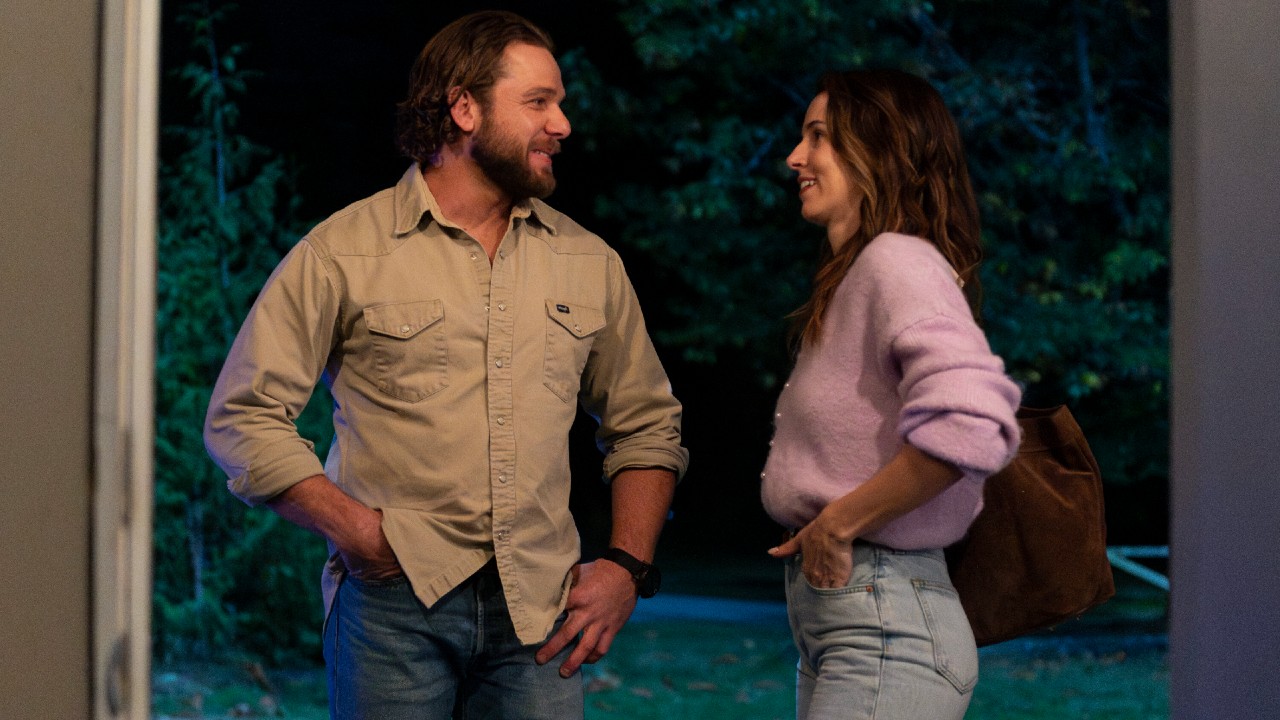28 Minutes with Naomie Harris

27-year old London native Naomie Harris talks about filming the critically acclaimed horror-thriller 28 Days Later, maintaining a normal life, and makes it clear that her new film is not a “zombie” movie.
How did you get this role?
NH: I just auditioned, which is pretty amazing because I was only nine months out of drama school when I got the role. And I spent most of the time after leaving drama school unemployed. It’s really tough to get started as a new actress and over here, as in England, it’s about people willing to take a risk on a newcomer. And nobody really wants to do that because everybody’s job is on the line. The great thing about someone like Danny Boyle is that he has the guts to take a risk on a newcomer. What he did after my second audition was he coached me for my final audition. Then I got it, which is great. Changed my life.
Did you partake in any of the “zombie workshops?”
NH: Yeah, we did that all together, actually. We all kind of ran around and did different body states to come up with the final idea as to what ended up being zombie movement. We all had to be zombies, which was fun and somewhat liberating. Especially for my character, because it is such a long way away from who I am and she is such a strong character. The workshop was really useful for me.
How was it filming with all the streets blocked off?
NH: It was great fun. Kind of bizarre, as well. London is this like New York. It's a twenty-four hour city. To see these really important landmarks, which are normally rammed full of people, completely deserted, is really eerie. It was very strange.
Your Daily Blend of Entertainment News
Did you guys do anything to keep the mood more intense?
NH: It just was. It was a tough shoot. And the people who’d been in this business for twenty, thirty years said that making 28 Days Later was one of the toughest experiences they’d ever had. Because we did a month of night shoots, we were trying to sleep during the day, and not having any sunlight for a month does weird things to you. So it was really physically very demanding as well. I didn’t realize that when you do stunts, you actually do get damaged. There is no way of being thrown on the floor without getting some bruises. And then we were filming in November, at night, with rain machines, wind machines, rats, and covered in blood, so all of it was really grueling. So we didn’t have to work very hard at trying to imagine the tough situations, because it was.
What do you think people are going to walk away with when they see this film?
NH: Danny talks a lot about it being a reflection of social rage. The rage that we are all experiencing: air rage, supermarket rage, etc. I look at it as an exploration of what happens when you remove the social structures on man as an individual and what’s left after that. I think you’re left with a “base” individual who’s lost and destructive. And I think that’s what I find the movie is about, really.
So you would rather it not be labeled as a “zombie” movie.
NH: I think it’s much more than a “zombie” movie. I think it’s much more interesting, has a lot more to say, I think the characters have a lot more depth than the typical zombie movie, and also the so-called “zombies” themselves, or as we call them “infected” are a lot more interesting as well because they’re essentially human beings. With zombies, they’re almost nonhumans. With our “infected,” there’s still a human being in there. It’s just that they’re consumed by this rage and they’re a lot quicker and they’re thinking beings as well. So I wouldn’t call it a “zombie” movie, no. (Jokingly) I’d argue against that.
Where you prepared for the way the film was received in England?
NH: I don’t think it was received that well in England. Over here, it’s been very successful. I expected the critics in England to really go mad for it and to support it. And they didn’t. The people of England went to the cinema and supported it somewhat. But the critics didn’t get behind it, which was kind of disappointing. But over here, it’s been amazing. That’s been the real shocker.
So you didn’t watch any movies like Night of The Living Dead for your research?
NH: No, I didn’t. What we did for our research was we had soldiers come in and talk to us. They had been in the Bosnian war and so on. They talked about what it’s like to survive in a war-torn country and what that does to your psyche and they told us really horrific stories about people being killed and children being murdered and so on. We also read “The Hot Zone,” as well, which is about the Ebola virus and watched footage of riots and things like that. Because Danny didn’t want it to be, as I said, like a “zombie” movie. He didn’t want it to be based on anything like that. In London, one of the critics said “It’s a genre-busting movie.” And I think that is what it is. And that’s because Danny was determined that he wouldn’t base it on Night of The Living Dead, he was just going to find his own root to making the movie.
What was the most fascinating thing you found about Danny Boyle?
NH: His energy and his willingness to allow everybody to take part in contributing to the film. Directors can get very egotistical and they can say “This is my vision. I’m going to stick to it. I’m going to protect it. And everybody’s going to do what I say.” Danny is not like that at all. Everybody contributes. And he normally works with the same team. As a performer, you’re just a pawn, but Danny allows you to have a real voice in the process. But he’s also an endless ball of energy. He just never, ever, stops, which you have to be as a director. Because you have to get everybody going. He’s the one who’s keeping the whole team together.
How was your journey to this point?
NH: I started acting when I was seven. And I went to a local drama school which is very well-known in London. Because of that, I started getting jobs, and I worked all the time as a child, pretty much non-stop. Until I was eighteen, and then I went to University and studied social and political sciences. I did something completely different to have a break. Then I re-trained and went to Bristol Old Vic Theatre School, and learned to be proper performer. Because as a child actor, you think you know so much, but you know nothing. So going to Bristol, I got rid of a lot of bad habits, and started again. Then I left in 2000 and nine months later got the Danny Boyle film and everything followed since.
What is the difference between child acting and adult acting?
NH: I think adult acting requires a lot more depth, really. There are certain expectations that are put on you as a child actor, but mainly it’s just turn up and say your lines with a lot of energy and a cute smile.
Are you working on anything now?
NH: No, I just finished two movies. I did Thunderbirds, which is going to be out summer 2004, and I did a film called Trauma, with Mena Suvari and Colin Firth.
Do you find that it is a double-sword that you are fighting, being that you’re a female actress and a black actress?
NH: Yeah, in some respects. Then I find that a real challenge. I really do. Because I want to do something different. I like the challenge of carving out a different path for myself. So it involved taking a lot of risks and saying no to a lot of projects. I’ve said no to a lot of things since starting with 28 Days Later and so on. But that makes it all the more exciting because I’m making my own decisions.
Since the success of this film, are you being recognized in the streets, either in the U.K. or the States?
NH: Yeah, I was surprised to be recognized here. But it’s not on a mammoth scale. Because I was working with Mena Suvari and she was telling me how difficult it is. She was saying that she was skiing in the middle of Austria, and was wearing three coats and dark glasses and people still recognized her. That must get really difficult. Whereas I feel like I can go anywhere and do anything and people don’t hassle me at all. I think it is a great stage.
So would you almost like to avoid that stage where everyone sees you and everyone would hound you?
NH: Yeah. Not in terms of the work, obviously. Because the more status you have, the more recognition, the better the parts. This is ultimately, what I want to do. But yeah, it would be nice to keep some of my anonymity. When you’re starting out, you do as much as possible, because you’re trying to think of the next part and raising your profile, but as soon as you get there, you want to cut it all down. Because in London, I’m doing everything that I did before. And I want to keep on doing that because I think it’s important, as well, that you maintain touch with what’s going on in everyday life. If you start traveling around in limos the whole time, then it doesn’t feed you somehow. You get divorced from what is true life. And that’s not healthy.
28 Days Later is currently playing in theaters with a newly restored “alternate” ending.
Read our review of 28 Days Later.
